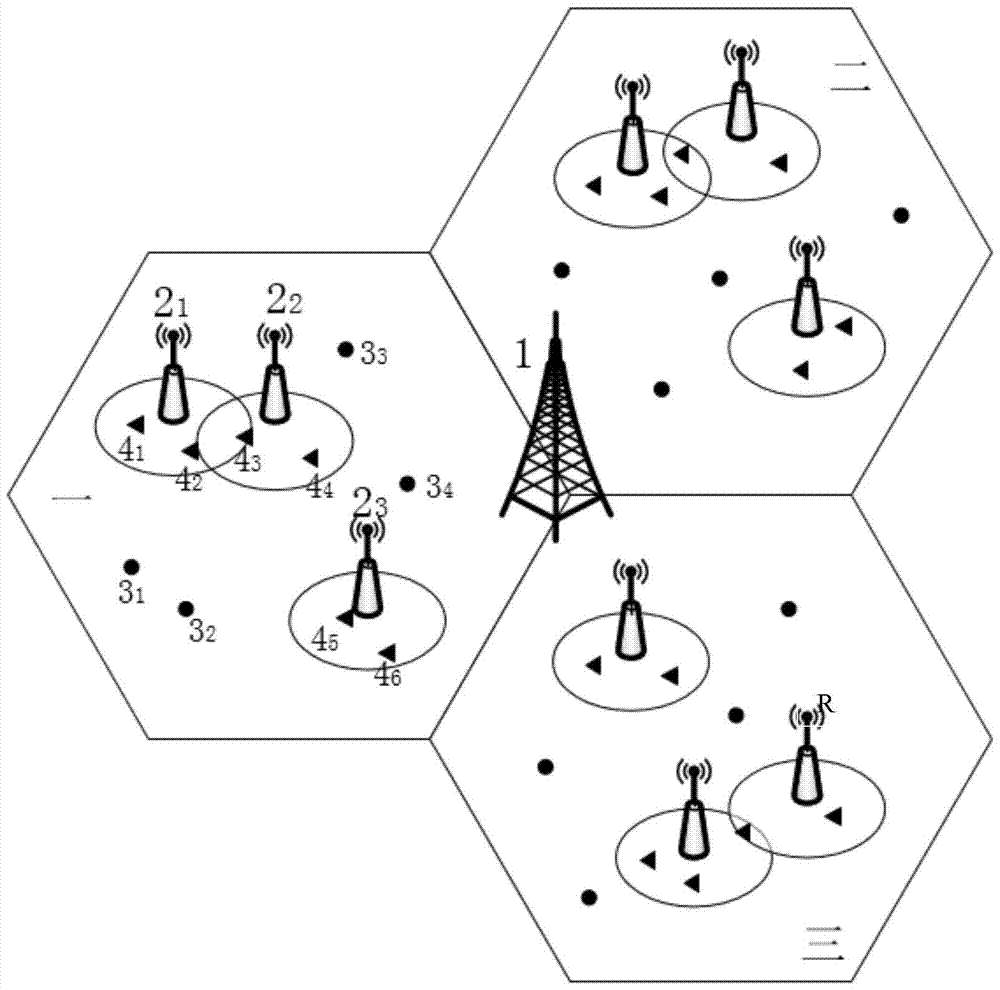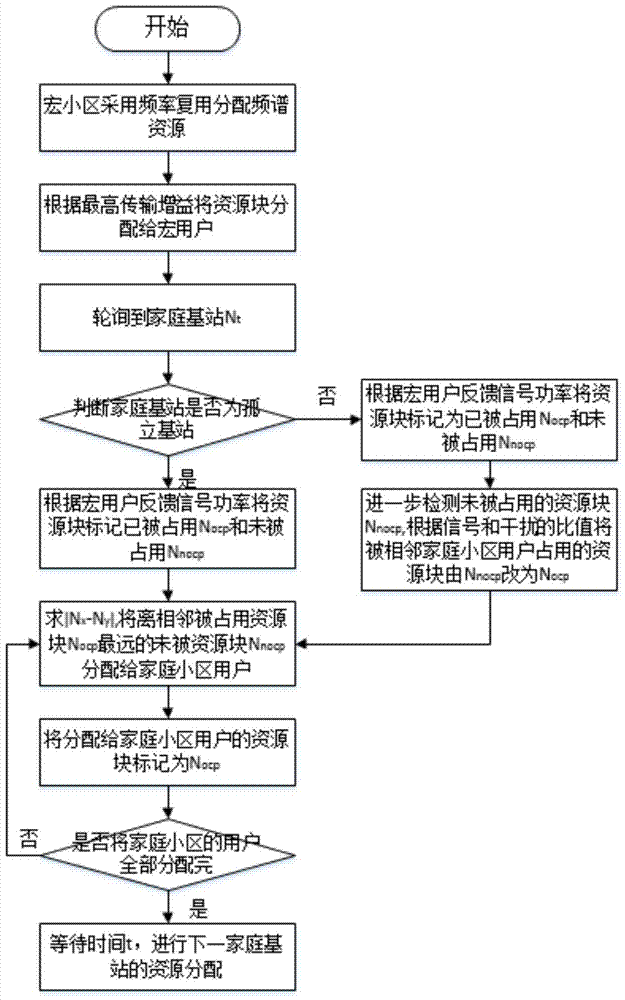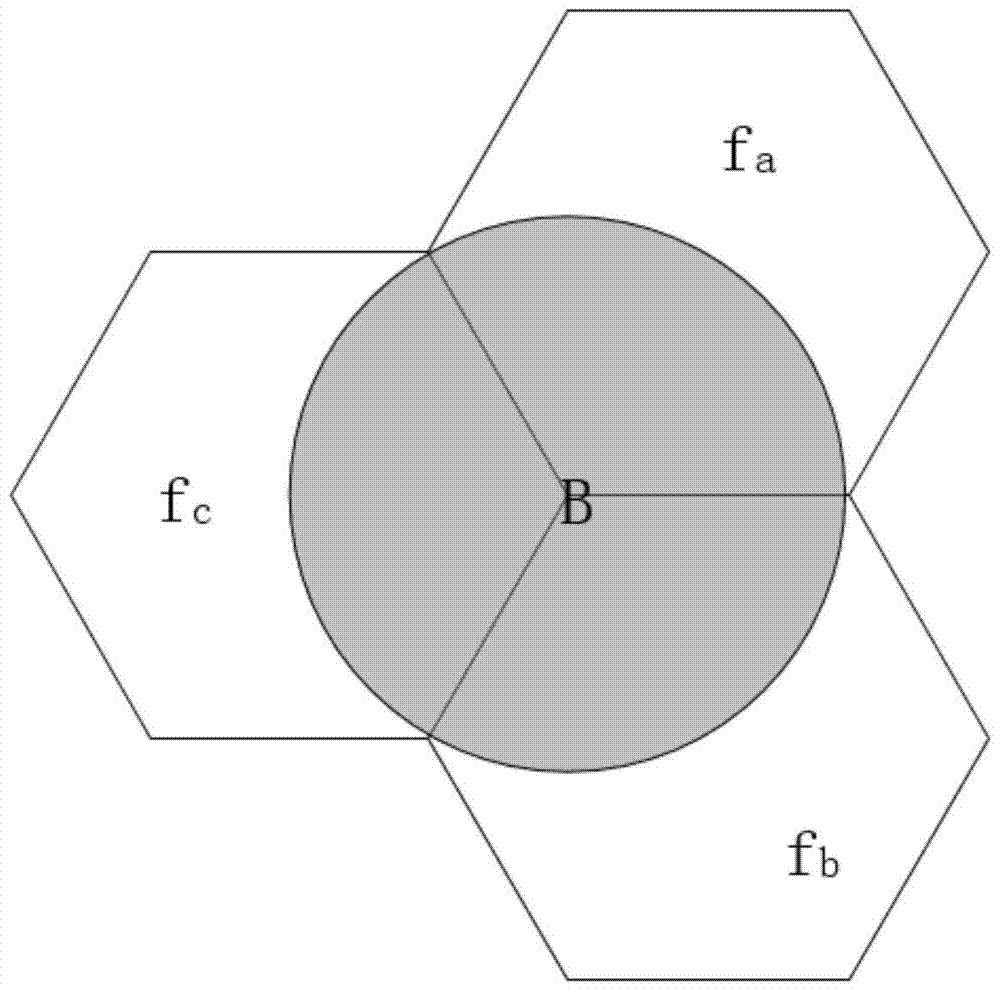A low-complexity cognitive-based spectrum resource allocation method for femtocells
A spectrum resource allocation and home base station technology, applied in the field of cognitive-based spectrum allocation and resource allocation of heterogeneous networks, can solve the problems of high cost of high-power nodes, infeasible cell splitting, limited gain, etc., to avoid interference, The effect of improving spectrum utilization efficiency and low complexity
- Summary
- Abstract
- Description
- Claims
- Application Information
AI Technical Summary
Problems solved by technology
Method used
Image
Examples
Embodiment Construction
[0028] A low-complexity cognition-based home base station spectrum allocation method proposed by the present invention is described in detail in conjunction with the accompanying drawings and embodiments as follows:
[0029] The present invention proposes a low-complexity cognitive-based home base station spectrum resource allocation method, which specifically includes the following steps:
[0030] (1) The macro cell layer of the network adopts the method of partial frequency reuse. With the location of the macro base station as the center and R meters as the radius, a circle is made to divide the macro cell into a central area and an edge area. The area outside the circle is defined as the edge area. Defined as the central area, the central area uses the entire spectrum B, and the edge areas use three orthogonal sub-bands f of the spectrum B respectively a , f b , f c , the minimum wireless resource allocated to the user is defined as a resource block, and the resource bloc...
PUM
 Login to View More
Login to View More Abstract
Description
Claims
Application Information
 Login to View More
Login to View More - R&D Engineer
- R&D Manager
- IP Professional
- Industry Leading Data Capabilities
- Powerful AI technology
- Patent DNA Extraction
Browse by: Latest US Patents, China's latest patents, Technical Efficacy Thesaurus, Application Domain, Technology Topic, Popular Technical Reports.
© 2024 PatSnap. All rights reserved.Legal|Privacy policy|Modern Slavery Act Transparency Statement|Sitemap|About US| Contact US: help@patsnap.com










